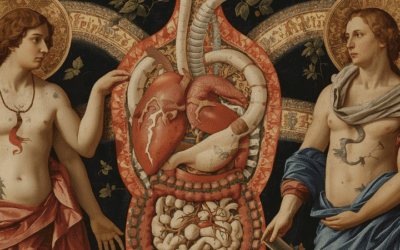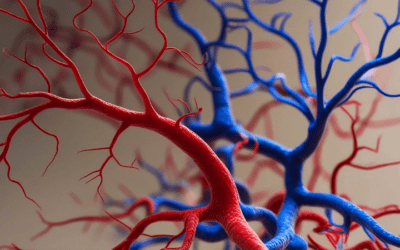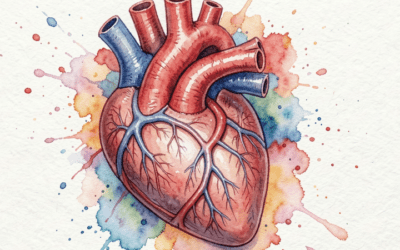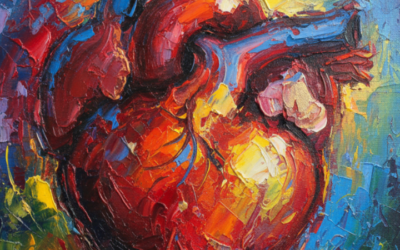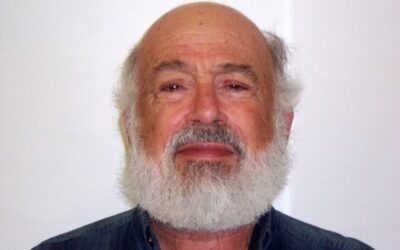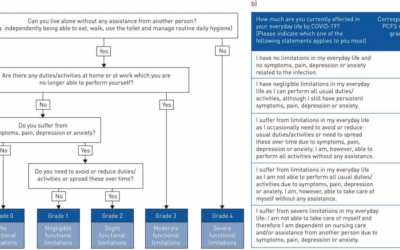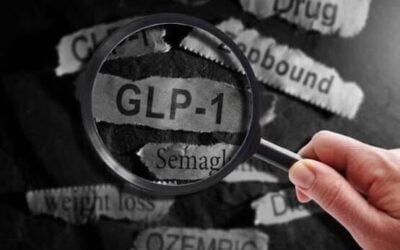Laura Hughes
Daniel Lander, ND, FABNO
With advances in early detection and treatment strategies, fewer people are dying from cancer. There are more than 13 million cancer survivors in the United States alone – a number which is expected to increase to 18 million by the year 2022.1 The National Cancer Institute (NCI) Department of Cancer Survivorship uses the term “cancer survivor” to describe any individual diagnosed with cancer, from the moment of diagnosis through the rest of his or her life. This broad definition can be further divided into 3 distinct phases: the time from diagnosis until the end of initial treatment, the transition from treatment to extended survival, and long-term survival.1 The patient experience during each phase of survivorship is complex and challenging. However, it is well reported that those on the path to long-term survival, including those considered “cured” from disease, are often left to manage the physical and psychosocial consequences of their treatments without adequate support.
It is estimated that 30% of cancer survivors experience distressing fatigue that may persist for more than 10 years post-treatment.2 This severely impacts quality of life, and can lead to additional co-morbidities. Support for pharmacological interventions for cancer-related fatigue is limited.3 The goal of this paper is to describe how naturopathic medicine can play a role in alleviating the burden of fatigue in cancer survivors. This will be done by elucidating why fatigue has been an underdiagnosed and consequently undertreated symptom of cancer survival, and then briefly reviewing the latest evidence for available naturopathic interventions.
Barriers to Treatment
Persistent fatigue in cancer survivors cannot be managed if it is not reported. One study has attempted to identify the barriers leading to a delay in treatment by asking for “additional comments” at the end of a fatigue severity questionnaire.4 Upon analysis, it was found that cancer-related fatigue is at odds with what is meant by being a “survivor.” Study participants reported that there is such a societal emphasis on conquering and beating cancer, it is difficult to identify as a cancer survivor and to accept that their own story might be different than this one of hope. Furthermore, it is a struggle when support systems do not recognize the difference between looking well and feeling well. In the hierarchy of disease, cancer tops the list for many survivors, and since they are alive, they feel that they have no right to complain about anything that comes after treatment or cure. There was a general consensus among study participants that following the acute treatment phase, their functional status was no longer a concern to their medical team. They felt that follow-up appointments were to ensure that the cancer hadn’t returned, not to deal with their new lives and challenges.4
It is important for naturopathic doctors to understand these schemas, because the nature of our medicine allows us the contact time to delve into such concerns. Educating patients with active cancer about the potentially enduring effects of their treatment may lead to greater awareness about what they can expect after treatment cessation,4 and, consequently, to an increase in the number of patients who report lingering symptoms. One of the first studies aimed at understanding fatigue from the patient’s perspective suggests that being able to name or assign cause to an experience allows one to give it a place in one’s life.5 Having their experience validated by a medical professional may decrease the distress associated with persistent cancer-related fatigue, and empower survivors to engage in available therapies.
Naturopathic Interventions
To improve the management of cancer survivors suffering from fatigue after the completion of primary treatment, the American Society of Clinical Oncology (ASCO) very recently adapted the pan-Canadian guideline on screening, assessment, and care of cancer-related fatigue in adults with cancer, the National Comprehensive Cancer Network (NCCN) Clinical Practice Guidelines In Oncology (NCCN Guidelines) for Cancer-Related Fatigue, and the NCCN Guidelines for Survivorship into 1 set of recommendations.6 Based upon review of the literature until early 2013, exercise and psychosocial interventions (ie, cognitive behavioral therapy) were identified as being clearly beneficial for management of fatigue.6 Here, we summarize the remaining treatment guidelines in the context of the latest research.
Mindfulness
The ASCO considers mindfulness potentially beneficial. Results from a recent randomized controlled trial (RCT) by Johns et al7 strengthens this recommendation by showing that a mindfulness-based stress reduction program not only improved the fatigue of cancer survivors randomized to the intervention, but that the improvement was maintained at 6 months of follow-up (Table 1). From this study, it appears that mindfulness is well accepted by cancer survivors, and it is a therapy that they can continue on their own after the conclusion of a formal program.7
Acupuncture
ASCO considers acupuncture potentially beneficial. The most up-to-data meta-analysis of RCTs set out to focus on cancer survivors who completed post-primary treatment.8 However, due to the limited number of studies of such individuals, the inclusion criteria were expanded to include cancer patients undergoing treatment. In the analysis of 7 RCTs, no statistically significant difference between acupuncture and sham acupuncture was found. However, heterogeneity between studies was an issue. Since the release of ASCO guidelines, 2 additional RCTs have been published on acupuncture for fatigue in post-treatment cancer survivors (Table 1). In a group of 30 breast cancer survivors, Smith et al showed a statistically significant reduction in fatigue for acupuncture vs wait-listed controls after 2 weeks.9 In contrast, Deng et al observed no statistically significant difference between acupuncture and sham acupuncture in 74 cancer patients, although both groups experienced a reduction in fatigue.10 Smith et al identified that the treatment effect was greatest when acupuncture was administered twice a week, and that less frequent treatment may explain outcome differences.9 There are also power limitations to published acupuncture studies. A larger RCT has been planned to address this.9
In an editorial11 that accompanied the publication of the RCT by Smith et al, Molassiotis suggests that future studies should also include objective primary (physiological) outcomes in order to show how acupuncture works for cancer-related fatigue, consensus around use of traditional Chinese medicine acupuncture concepts vs Western medical concepts, and which specific points to use.11
Yoga
The ASCO considers yoga potentially beneficial. Two recent RCTs strengthen a role for this intervention (Table 1). In a study of 200 breast cancer survivors, a 12-week hatha yoga intervention was not only associated with a statistically significant improvement in fatigue scores compared to wait-listed controls, but also significantly lower blood concentration of tumor necrosis factor-alpha (TNF-α) and interleukin (IL)-6 after 3 months of practice.12 Similarly, another study of 31 breast cancer survivors showed that compared to controls, a 12-week intervention of Iyengar yoga was associated with a statistically significant reduction in gene expression of a number of inflammatory markers, in addition to an improvement in fatigue scores after 3 months.13 A critique of many interventions for cancer-related fatigue is that it is impossible to tell how the therapy works when objective, physiological outcomes are not measured. It has been suggested that this lack of measurable biomarkers has led to the failure of cancer-related fatigue being classified as either an acute or chronic model of illness, which in turn has led to patients’ concerns being dismissed by some medical practitioners.4 Therefore, these trials are an important contribution to the literature.
Additional Naturopathic Modalities
The ASCO did not include any dietary or botanical interventions in their guidelines; however, from a naturopathic standpoint, it would be remiss to not consider these important factors in healing. Observational evidence suggests that there are dietary differences between fatigued and non-fatigued survivors (Table 1). Studies by Alfano et al14 and Zick et al15 support the hypothesis of an inflammatory basis for fatigue in cancer survivors, and a potential role for diet in mitigating this inflammation. Intriguingly, due to their use of a multidimensional fatigue scale, Alfano et al showed that markers of inflammation appeared more associated with physical fatigue than psychological fatigue. Hopefully, the first RCT of omega-3 fatty acids in cancer survivors designed with fatigue as outcome measure16 will shed light on the potential of dietary interventions in this population.
From a botanical perspective, Panax quinquefolius (Wisconsin ginseng) shows promise as an intervention to improve post-cancer fatigue (Table 1). In a double-blind, RCT, 2000 mg of Panax quniquefolius per day improved fatigue in cancer survivors compared to placebo over an 8-week period.17 Furthermore, there was no difference in toxicity and reported side effects between treatment arms. This intervention included both patients who were undergoing active treatment and who had finished treatment; those in the former group reported slightly greater benefit from the intervention. Further studies are needed, but given the limited evidence supporting pharmaceuticals as a treatment for fatigue in cancer survivors,3 prescribing Panax quinquefolius is worth considering as a safe and effective alternative.
Table 1. Interventions for Post-Cancer Fatigue: Recent Research
| REFERENCE | METHODOLOGY | OUTCOME |
| Mindfulness | ||
| Johns et al; 20147 | RCT; 35 cancer survivors (various malignancies) with clinically significant fatigue
Intervention: 7-week mindfulness-based stress reduction program, including meditation, yoga, and self-regulatory responses to stress
Control: Wait-list |
Intervention participants reported statistically significant reductions in fatigue severity and impairments vs controls.
Improvements were maintained at 1 month and 6 months of follow-up. |
| Acupuncture | ||
| Smith et al; 20139 | RCT; 30 breast cancer survivors at least 1 month post-treatment for breast cancer
Intervention: (n=10) 6 sessions of acupuncture over 8 weeks (twice a week for first 2 weeks; once weekly thereafter). Points were of TCM paradigm.
Control group: sham acupuncture (n=10), wait-list (n=10) |
Statistically significant reduction in fatigue for acupuncture group vs wait-list control at 2 weeks
At 4 and 6 weeks, there was a non-significant trend in reduced fatigue for the acupuncture and sham acupuncture vs wait-list control. |
| Deng et al; 201310 | RCT; 100 cancer survivors (various malignancies), at least 2 months post-chemotherapy, who reported fatigue before but not after chemotherapy; 74 completed post-intervention questionnaire
Intervention: (n=34) 6 sessions of acupuncture over 6 weeks (once a week). Points were of TCM paradigm.
Control group: (n=40) sham acupuncture |
Fatigue scores fell in both acupuncture and sham acupuncture groups from baseline to post-treatment, but no statistically significant difference between groups.
No significant improvement in fatigue after 6 months in the acupuncture group |
| Yoga | ||
| Kiecolt-Glaser et al; 201412 | RCT; 200 breast cancer survivors at least 2 months post-treatment for cancer
Intervention: (n=100) 12-week hatha yoga program, 90 minutes 2 times a week
Control group: (n=100) wait-list
Both groups had fasting blood samples taken at baseline, post-intervention, and 3 months post-intervention. |
At 3 months post-follow up:
-Statistically significant reduction in fatigue for yoga group vs control -Statistically significant reduction in inflammatory cytokines (TNF-α, IL-6) in yoga group vs control |
| Bower et al; 201413 | RCT; 31 breast cancer survivors with persistent fatigue at least 6 months post-treatment for breast cancer and no active disease
Intervention: (n=15) 12-week Iyengar yoga program, 90 minutes twice a week
Control group: (n=16) 12-week health education program |
Statistically significant reduction in fatigue for yoga vs control group.
Statistically significant reduction in pro-inflammatory NF-kB-related gene expression. |
| Diet | ||
| Alfano et al; 201214 | Prospective survivor cohort; 633 breast cancer survivors
Self-administered food-frequency questionnaire, multi-dimensional fatigue scale, and blood samples to assess for inflammatory markers, taken at 30-months of follow-up |
The highest tertile of blood CRP was associated with a 1.8 greater odds of fatigue, even after adjustment for confounding variables.
A higher omega-6 vs omega-3 fatty acid intake was associated with higher CRP and more fatigue (OR: 2.8 for highest tertile vs lowest tertile). |
| Zick et al; 201315 | Cross-sectional pilot study; 40 cancer survivors (various malignancies), at least 12-weeks post-treatment for cancer, and no active sign of disease
Study subjects completed a 4-day diet diary, and a 1-page fatigue assessment on the final day. |
Mean daily intake of whole grains, green leafy vegetables, and tomatoes was significantly higher in non-fatigued survivors than fatigued survivors.
Beta- and alpha-carotene, vitamin A, vitamin C, and omega-3 fatty acids (DHA and EPA) were correlated with less fatigue. |
| Botanicals | ||
| Barton et al; 201317 | Double-blind RCT; 364 cancer survivors (various malignancies) who were diagnosed a least 2 years prior. Subjects were either undergoing active treatment or had completed treatment.
Intervention: 2000 mg of Panax quinquefolius (BID dosing) for 8 weeks
Control: Placebo for 8 weeks |
Statistically significant improvement in fatigue for those randomized to the Panax quinquefolius group vs placebo
There was no statistically significant difference in side effects and toxicity between groups. |
(RCT = randomized controlled trial; TCM = Traditional Chinese Medicine; TNFα = tumor necrosis factor-alpha; IL-6 = interleukin-6; NF-ĸB = nuclear factor kappa-B; CRP = C-reactive protein; DHA = docohexaenoic acid; EPA = eicosapentaenoic acid)
Conclusion
Fatigue contributes greatly to the morbidity of cancer survivors. In 2006, the Institute of Medicine (IOM) identified that cancer survivors are at risk of being lost to follow-up by scientific research and the healthcare system, and recommended that oncology teams implement survival-care plans (SCP) for each patient. The goal of the SCP is to promote care coordination, improve communication between physicians, increase primary-care practitioner knowledge regarding survivorship care, and deliver education to survivors about their future healthcare needs.18 Although patients report a high degree of satisfaction with SCPs, there have been significant barriers to wide-scale implementation.18,19 Naturopathic doctors are in a position to help identify and treat cancer survivors burdened with persistent fatigue. While it is imperative that practitioners familiarize themselves with up-to-date screening, assessment, and management guidelines, it is important to remember that individualized medicine is especially important for cancer survivors as they struggle to identify with their own unique journeys.
 Laura Hughes is a 3rd-year naturopathic student at the Canadian College of Naturopathic Medicine in Toronto. She obtained her BSc and MSc in nutritional science from the University of Guelph, and her PhD in cancer epidemiology from Maastricht University. A keen explorer of the world, she participated in the 2014 CCNM brigade to Nicaragua with Natural Doctors International (NDI), and is co-leading an upcoming CCNM global health trip to India. In addition to oncology, she has a special interest in palliative care, and hopes to incorporate both into her future practice.
Laura Hughes is a 3rd-year naturopathic student at the Canadian College of Naturopathic Medicine in Toronto. She obtained her BSc and MSc in nutritional science from the University of Guelph, and her PhD in cancer epidemiology from Maastricht University. A keen explorer of the world, she participated in the 2014 CCNM brigade to Nicaragua with Natural Doctors International (NDI), and is co-leading an upcoming CCNM global health trip to India. In addition to oncology, she has a special interest in palliative care, and hopes to incorporate both into her future practice.
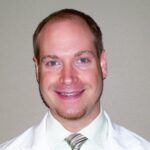 Daniel Lander, ND, FABNO, is a fellow of the American Board of Naturopathic Oncology (FABNO). He holds a BSc degree in nutritional sciences from the University of Guelph, and graduated from CCNM in 2006. His clinical training included a residency at the Cancer Treatment Centers of America. He is currently an associate professor at CCNM, teaching oncology and clinical nutrition, and supervises 4th-year interns in adjunctive cancer care at the Robert Schad Naturopathic Clinic at CCNM. He also maintains a small private practice in Toronto, in which he focuses in integrative oncology, supporting people with cancer during and after their conventional care.
Daniel Lander, ND, FABNO, is a fellow of the American Board of Naturopathic Oncology (FABNO). He holds a BSc degree in nutritional sciences from the University of Guelph, and graduated from CCNM in 2006. His clinical training included a residency at the Cancer Treatment Centers of America. He is currently an associate professor at CCNM, teaching oncology and clinical nutrition, and supervises 4th-year interns in adjunctive cancer care at the Robert Schad Naturopathic Clinic at CCNM. He also maintains a small private practice in Toronto, in which he focuses in integrative oncology, supporting people with cancer during and after their conventional care.
References:
- Siegel R, DeSantis C, Virgo K, et al. Cancer treatment and survivorship statistics, 2012. CA Cancer J Clin. 2012;62(4):220-241.
- Bower JE. Treating cancer-related fatigue: the search for interventions that target those most in need. J Clin Oncol. 2012;30(36):4449-4450.
- Minton O, Richardson A, Sharpe M, et al. Drug therapy for the management of cancer-related fatigue. Cochrane Database Syst Rev. 2010;(7):CD006704.
- Pertl MM, Quigley J, Hevey D. ‘I’m not complaining because I’m alive’: barriers to the emergence of a discourse of cancer-related fatigue. Psychol Health. 2014;29(2):141-161.
- Holley S. Cancer-related fatigue. Suffering a different fatigue. Cancer Pract. 2000;8(2):87-95.
- Bower JE, Bak K, Berger A, et al. Screening, assessment, and management of fatigue in adult survivors of cancer: an American Society of Clinical oncology clinical practice guideline adaptation. J Clin Oncol. 2014;32(17):1840-1850.
- Johns SA, Brown LF, Beck-Coon K, et al. Randomized controlled pilot study of mindfulness-based stress reduction for persistently fatigued cancer survivors. Psychooncology. 2014;24(8):885-893.
- Zeng Y, Luo T, Finnegan-John J, Cheng AS. Meta-Analysis of Randomized Controlled Trials of Acupuncture for Cancer-Related Fatigue. Integr Cancer Ther. 2013;13(3):193-200.
- Smith C, Carmady B, Thornton C, et al. The effect of acupuncture on post-cancer fatigue and well-being for women recovering from breast cancer: a pilot randomised controlled trial. Acupunct Med. 2013;31(1):9-15.
- Deng G, Chan Y, Sjoberg D, et al. Acupuncture for the treatment of post-chemotherapy chronic fatigue: a randomized, blinded, sham-controlled trial. Support Care Cancer. 2013;21(6):1735-1741.
- Molassiotis A. Managing cancer-related fatigue with acupuncture: is it all good news for patients? Acupunct Med. 2013;31(1):3-4.
- Kiecolt-Glaser JK, Bennett JM, Andridge R, et al. Yoga’s impact on inflammation, mood, and fatigue in breast cancer survivors: a randomized controlled trial. J Clin Oncol. 2014;32(10):1040-1049.
- Bower JE, Greendale G, Crosswell AD, et al. Yoga reduces inflammatory signaling in fatigued breast cancer survivors: a randomized controlled trial. Psychoneuroendocrinology. 2014;43:20-9.
- Alfano CM, Imayama I, Neuhouser ML, et al. Fatigue, inflammation, and omega-3 and omega-6 fatty acid intake among breast cancer survivors. J Clin Oncol. 2012;30(12):1280-1287.
- Zick SM, Sen A, Han-Markey TL, Harris RE. Examination of the association of diet and persistent cancer-related fatigue: a pilot study. Oncol Nurs Forum. 2013;40(1):E41-E49.
- McDonald C, Bauer J, Capra S, Coll J. The muscle mass, omega-3, diet, exercise and lifestyle (MODEL) study – a randomised controlled trial for women who have completed breast cancer treatment. BMC Cancer. 2014;14:264.
- Barton DL, Liu H, Dakhil SR, et al. Wisconsin Ginseng (Panax quinquefolius) to improve cancer-related fatigue: a randomized, double-blind trial, N07C2. J Natl Cancer Inst. 2013;105(16):1230-1238.
- Forsythe LP, Parry C, Alfano CM, et al. Use of survivorship care plans in the United States: associations with survivorship care. J Natl Cancer Inst. 2013;105(20):1579-1587.
- Mayer DK, Nekhlyudov L, Snyder CF, et al. American Society of Clinical Oncology clinical expert statement on cancer survivorship care planning. J Oncol Pract. 2014;10(6):345-351.





